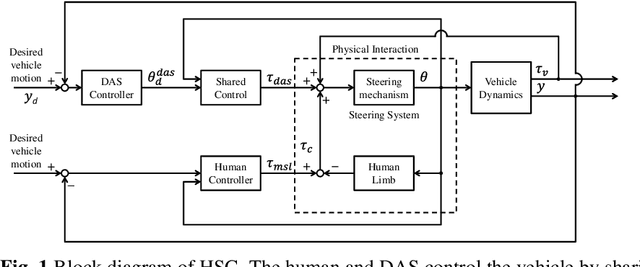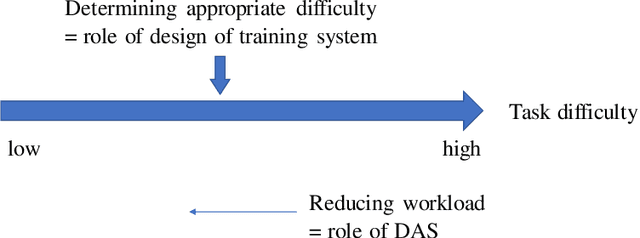Simultaneous Achievement of Driver Assistance and Skill Development in Shared and Cooperative Controls
Paper and Code
Jul 01, 2019



Advanced driver assistance systems have successfully reduced drivers' workloads and increased safety. On the other hand, the excessive use of such systems can impede the development of driving skills. However, there exist collaborative driver assistance systems, including shared and cooperative controls, which can promote effective collaboration between an assistance system and a human operator under appropriate system settings. Given an effective collaboration setup, we address the goal of simultaneously developing or maintaining driving skills while reducing workload. As there has been a paucity of research on such systems and their methodologies, we discuss a methodology applying shared and cooperative controls by considering related concepts in the skill training field. Reverse parking assisted by haptic shared control is presented as a means of increasing performance during assistance, while skill improvement following assistance is used to demonstrate the possibility of simultaneous achievement of driver assistance through the reduction of workload and skill improvement.
 Add to Chrome
Add to Chrome Add to Firefox
Add to Firefox Add to Edge
Add to Edge